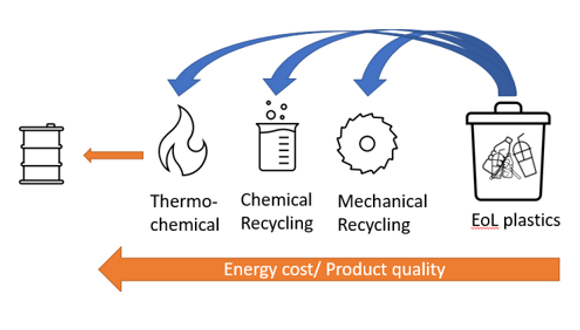Tue, 18 January, 2022
One of the challenges for end-of-life (EoL) plastic recycling is controlling the variations in feedstock quality.
These plastics can be treated by mechanical, chemical or thermo-chemical recycling:
- Mechanical recycling uses mechanical processes (grinding, shredding, etc) to obtain polymer granules without altering polymer’s molecular structure
- Chemical recycling uses chemical depolymerisation processes
- Thermo-chemical recycling employs heat to break down polymer chains into monomers
However, the chemical and thermo-chemical depolymerisation processes are associated with higher operational costs compared to mechanical recycling.
Despite this, chemical and thermo-chemical recycling techniques have the advantage of recovering the basic hydrocarbons that can be used to re-manufacture virgin-like polymers and thereby control variations in product quality.
Further developments in chemical and thermo-chemical processes will help to create value in EoL plastics that are hard to recycle.

The ISOPREP project offers an innovative approach to recycling end-of-life polypropylene products back into virgin quality polypropylene using solvent based technology, using a cost effective approach to upcycle or introduce the circular reuse of end of life Polypropylene (PP) materials.
You can find out more about the ISOPREP Project at the dedicated website.